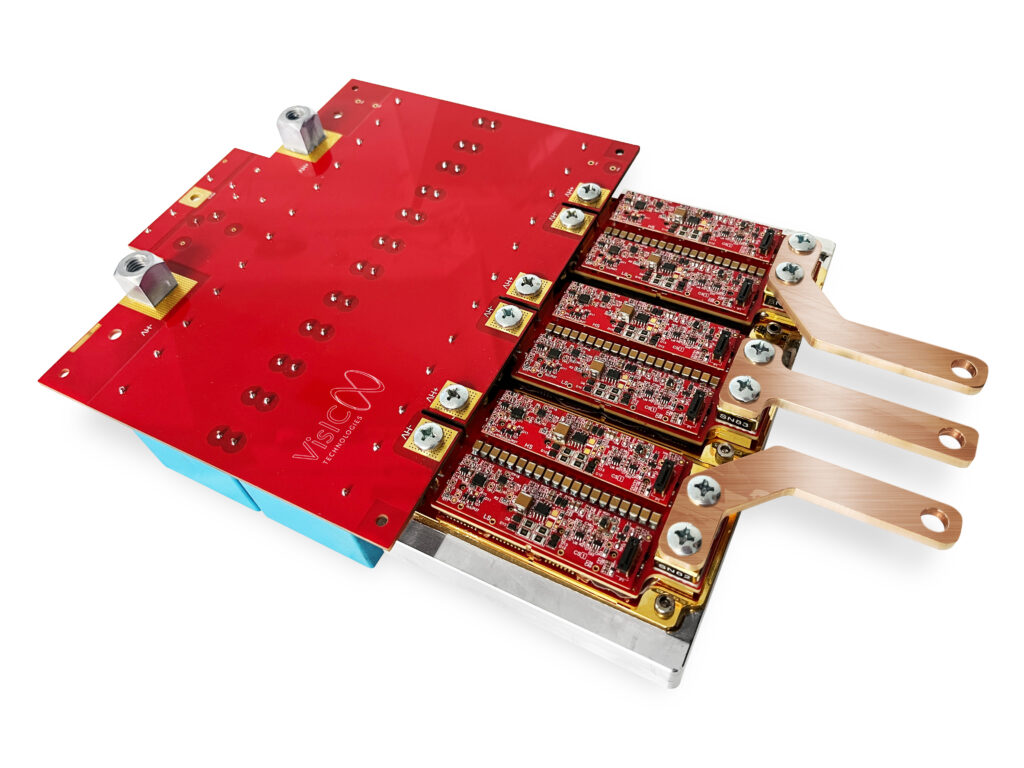VisIC Technologies paves the way to high-power GaN traction inverters, successfully operating a BEV motor
VisIC Technologies demonstrates an efficient Gallium Nitride based 3-phase traction inverter with an automotive-grade PMSM motor
February 15th, 2023

VisIC Technologies Ltd. successfully tested its 2.2mΩ 650V half-bridge power module, consisting of 4 parallel 8mΩ Power FET, in a 3-phase configuration (picture 1) on a dyno-test-bench using a PMSM motor at a major automotive OEM.
Thanks to this, VisIC Technologies has proven that their D³GaN (Direct Drive D-Mode Gallium-Nitride) semiconductor technology is well-suited even for the most challenging high-power automotive applications. Concerns about parallelization and oscillations caused by fast-switching transients have been addressed.
The inverter phase current reached 350Arms (500A peak) at 400V, although test system set-up limitations prevented higher currents, which the 2.2mΩ Power Module is capable of.
Worldwide Harmonized Light Vehicles Test Procedure (WLTP) driving cycle testing was executed and achieved comparable efficiency with commercial Silicon Carbide-based modules, despite using early non-optimized module prototypes. This means that D3GaN will deliver its promise of the highest efficiency, improving car costs through lighter, smaller power systems and a smaller battery size, without compromising the car’s driving range. In addition, the D3GaN technology, based on GaN-on-Silicon semiconductor process, is delivering better than Silicon Carbide (SiC) performance at the more competitive Silicon cost level.
“With this great accomplishment, acknowledged by a leading automotive OEM, VisIC Technologies has provided overwhelming evidence for higher-efficiency at lower-cost future EV traction inverters, for the automotive world,” said Dr. Tamara Baksht, CEO & Co-founder of VisIC technologies. “The automotive market demands high-power, high-voltage, high-reliability GaN, and our D3GaN die and module solutions are the answer.”
VisIC Technologies 3-phase prototype inverter system will be available for testing across additional customer sites towards the end of the 2nd quarter of 2023.
